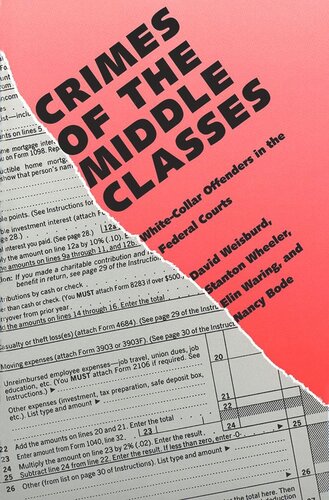

Most ebook files are in PDF format, so you can easily read them using various software such as Foxit Reader or directly on the Google Chrome browser.
Some ebook files are released by publishers in other formats such as .awz, .mobi, .epub, .fb2, etc. You may need to install specific software to read these formats on mobile/PC, such as Calibre.
Please read the tutorial at this link: https://ebookbell.com/faq
We offer FREE conversion to the popular formats you request; however, this may take some time. Therefore, right after payment, please email us, and we will try to provide the service as quickly as possible.
For some exceptional file formats or broken links (if any), please refrain from opening any disputes. Instead, email us first, and we will try to assist within a maximum of 6 hours.
EbookBell Team

5.0
18 reviewsWhite-collar criminals are often assumed to be wealthy and powerful individuals who receive lenient treatment from the courts. This book—a major study of convicted white-collar offenders in America—provides a radically different portrait of these criminals and their punishments. Weisburd, Wheeler, Waring, and bode argue that the majority of white-collar criminals come from the middle classes and that judges often punish wrongdoers of higher status more harshly than less socially privileged criminals.
Drawing from a large research project that had special access to confidential federal pre-sentence investigations, the authors are able to give a particularly rich and detailed view of white-collar crime—from securities fraud and anti-trust violations to embezzlement and tax fraud. Following offenders from their crimes through conviction and sentencing, their book provides a fresh look at a number of questions that have become central research and policy concerns. Fro example, they find that the most important factor that makes it possible to commit costly and damaging white-collar crimes is use of organizational resources. They state that, when sentencing white-collar criminals, judges consider the blameworthiness of defendants and the harm they inflict upon the community.
The authors argue that the vast middle of our increasingly bureaucratic society has both more opportunities for financial wrongdoing and more susceptibility to it. They predict that white-collar crimes committed by these Americans will grow in significance as the nation approaches the twenty-first century.